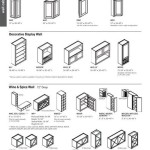What Do You Call Someone Who Works In A Kitchen?
The culinary world, a vibrant and dynamic arena of gastronomic creation, encompasses a diverse array of roles, each contributing uniquely to the overall dining experience. Identifying individuals who work within a kitchen environment necessitates understanding the specific functions they perform and their level of expertise. While "cook" is a common and widely understood term, it often lacks the precision to accurately describe the varying responsibilities and specializations found in a professional kitchen. This article will explore the various terms used to describe individuals working in a kitchen, differentiating between roles based on skill, experience, and designated responsibilities. The objective is to provide a comprehensive overview of culinary terminology, promoting clarity and understanding within the food service industry and beyond.
Culinary Professionals: A General Overview
At a broad level, anyone involved in the preparation, cooking, and presentation of food within a kitchen setting can be considered a culinary professional. This encompasses a wide range of positions, from entry-level assistants to highly skilled chefs. The term "culinary" itself refers to the art of cooking, and therefore, individuals working in a kitchen environment are directly involved in this art. The extent of their involvement, however, can vary significantly. For example, a dishwasher, while essential to the kitchen's smooth operation, would not typically be considered a culinary professional in the same way as a sous chef who actively participates in menu development and intricate food preparation. The key differentiator lies in the level of direct involvement with the creative and technical aspects of cooking.
Beyond the general term "culinary professional," various other descriptors apply. Food service worker is another broad term encompassing roles beyond just cooking, including serving staff, bussers, and hosts. The term "kitchen staff" is also commonly used, referring collectively to all personnel working within the kitchen, regardless of their specific duties. However, to gain a more nuanced understanding, it is crucial to delve into the specific roles and job titles found in a typical professional kitchen.
Specific Kitchen Roles and Titles
The structure of a kitchen brigade, often referred to in formal culinary settings, provides a hierarchical framework for understanding the various roles. This system, popularized by Auguste Escoffier, organizes the kitchen into specific stations, each with designated responsibilities and levels of authority. While modern kitchens may not strictly adhere to the classic brigade system, it still serves as a useful model for understanding the hierarchy and the distinct roles within a kitchen.
Chef: The term "chef" is derived from the French word meaning "chief" or "head." In a professional kitchen, the chef is the ultimate authority, responsible for overseeing all aspects of food preparation and kitchen operations. The chef's duties typically include menu planning, food ordering, staff management, quality control, and ensuring adherence to health and safety regulations. There are several levels of chefs, each with varying levels of responsibility and experience.
Executive Chef (Chef de Cuisine): This is the highest-ranking chef in a restaurant or food service establishment. They are responsible for the overall direction and management of the kitchen, including menu design, cost control, and staff supervision. In larger establishments, the Executive Chef may oversee multiple kitchens and delegate specific tasks to subordinate chefs.
Sous Chef (Second Chef): The sous chef is the second-in-command and assists the Executive Chef in all aspects of kitchen management. They are responsible for supervising the kitchen staff, ensuring food quality, and filling in for the Executive Chef in their absence. The sous chef often plays a key role in training new employees and maintaining kitchen standards.
Chef de Partie (Station Chef): Also known as a line cook or station chef, this individual is responsible for a specific station within the kitchen, such as the sauté station, grill station, or pastry station. They are responsible for preparing all dishes that originate from their assigned station, ensuring consistent quality and adherence to recipes. Examples of specific chef de partie roles include:
- Saucier (Sauce Chef): Responsible for preparing sauces, stocks, and gravies. This is often considered one of the most demanding stations in the kitchen.
- Poissonier (Fish Chef): Responsible for preparing fish and seafood dishes.
- Rôtisseur (Roast Chef): Responsible for roasting meats and poultry.
- Grillardin (Grill Chef): Responsible for grilling meats, fish, and vegetables.
- Garde Manger (Pantry Chef): Responsible for preparing cold dishes, such as salads, appetizers, and charcuterie.
- Pâtissier (Pastry Chef): Responsible for preparing desserts, pastries, and baked goods.
- Boulanger (Baker): Responsible for baking bread and other baked goods. While overlap can happen with the pastry chef, bakers often specialize in only bread production.
Commis Chef (Junior Chef): A commis chef is an entry-level cook who assists the chef de partie in their duties. They are typically recent culinary school graduates or individuals with limited kitchen experience. The commis chef performs basic tasks, such as chopping vegetables, preparing ingredients, and cleaning the station.
Kitchen Assistant (Kitchen Hand): This is often a more general entry-level position that may not necessarily involve cooking. Kitchen assistants typically perform tasks such as washing dishes, cleaning the kitchen, and assisting with food preparation. This role provides an opportunity to gain basic kitchen skills and potentially advance to more specialized positions.
Dishwasher (Dish Porter): The dishwasher is responsible for cleaning dishes, cookware, and kitchen utensils. While this role does not involve cooking, it is an essential part of the kitchen operation, ensuring hygiene and cleanliness. The dishwasher is often referred to as a "kitchen porter" in some regions.
Factors Influencing Job Titles
It is important to note that job titles and responsibilities can vary depending on the size, type, and style of the restaurant or food service establishment. A small family-owned restaurant may have a more simplified kitchen structure, with fewer specialized roles. In such cases, one individual may perform multiple tasks. Conversely, a large, high-end restaurant may have a more complex kitchen brigade system, with highly specialized roles and a clear hierarchy. The specific cuisine offered can also influence the types of roles required. For example, a French restaurant may have a stronger emphasis on sauce preparation, requiring a highly skilled saucier. A bakery will prioritize the roles of baker and pastry chef.
Geographic location can also influence culinary terminology. In some regions, certain terms may be more commonly used than others. For example, the term "cook" may be used more broadly in some areas, while other regions may prefer more specific titles, such as "line cook" or "station chef." Furthermore, international experience and training can influence an individual's title. Chefs trained in Europe may use terms derived from the French brigade system, even when working in kitchens outside of Europe.
Furthermore, the advent of modern cooking technologies and techniques has also influenced kitchen roles. The rise of molecular gastronomy and other innovative culinary approaches has led to the emergence of new specialized positions, such as culinary scientists or food technologists, who apply scientific principles to food preparation. These individuals contribute to the development of novel dishes and techniques, pushing the boundaries of culinary innovation.
Distinguishing Between "Cook" and "Chef"
The terms "cook" and "chef" are often used interchangeably, but there is a significant difference between the two. While both individuals are involved in preparing food, the chef typically possesses a higher level of skill, experience, and responsibility. A cook may be responsible for following recipes and preparing dishes according to established standards. A chef, on the other hand, is typically involved in creating recipes, designing menus, managing staff, and overseeing all aspects of the kitchen operation. A chef has advanced training, often through culinary school or extensive on-the-job experience. Simply put, all chefs are cooks, but not all cooks are chefs.
The distinction also lies in the level of creative control and decision-making authority. A chef has the autonomy to create new dishes, experiment with flavors, and innovate in the kitchen. A cook, while skilled in preparing food, typically follows established recipes and procedures. The title "chef" carries a certain level of prestige and recognition within the culinary world, reflecting the individual's expertise and leadership abilities.
In summary, determining what to call someone who works in a kitchen requires careful consideration of their specific role, responsibilities, and level of expertise. While "cook" is a general term, it often lacks the precision to accurately describe the diverse array of positions found in a professional kitchen. Understanding the various job titles, functions, and the influence of factors such as kitchen size, cuisine, and geographic location is crucial for navigating the culinary landscape. Recognizing the distinction between "cook" and "chef" further enhances the clarity and appreciation for the different levels of skill and responsibility within the world of culinary arts.

What Are The Differences Between A Chef Cook

What Are The Differences Between A Chef Cook

13 Types Of Chefs Kitchen Hierarchy Titles Explained

What Is A Line Cook Definitions Duties More

What Are The Differences Between A Chef Cook

What Is A Sous Chef Cooking School Food Network

Kitchen Hierarchy Explained The Brigade De Cuisine

How To Become A Chef The Essential Guide Escoffier

Pastry Chef Vs Baker Key Differences And Similarities Indeed Com

13 Types Of Chefs Kitchen Hierarchy Titles Explained
Related Posts








